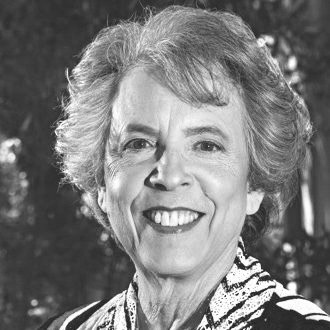The conversation is supposed to begin like this: “Will you forgive me for anything I might have said or done this year that has hurt you?”
You are sitting with a friend over coffee, during the days between Rosh Hashanah and Yom Kippur, and you ask this question. Not easy. What if your friend responds, “What did you do or say?” Or, “You know, it did really hurt me when I found out that you … shared that story that I told you in confidence, or… didn’t include me when you had that party, or … embarrassed me in front of so and so.” These are not horrible sins, maybe, but they are the kind of interpersonal hurts that erode intimacy.
Maybe there were more serious breaches. Could you call the relative whom you stopped speaking to over some long-ago insult and ask the same question? What kind of conversation would ensue? Or could you sit down with your partner, or your kids, or your parents and ask the same question?
Our tradition tells us: “For transgressions between a person and God, Yom Kippur serves as atonement. For transgressions between one person and another, Yom Kippur does not serve as atonement until the one offended has been appeased.”
To atone, there are specific instructions: You have to acknowledge the hurt you did. Then, if the issue involves money, you have to pay back the money. Next, you have to resolve never to do it again. And finally, you have to discuss the issue with the one you have hurt and ask for forgiveness. This is teshuvah (repentance); this is the work of this season.
Asking for forgiveness is not easy, but it pales in comparison to how hard it is to forgive. Here Jewish tradition is also very clear: “If the person against whom one had sinned did not want to forgive, then one has to ask him/her for forgiveness in front of three of his/her friends. If he/she still didn’t want to forgive, then one asks him/her in front of six, and then in front of nine of his/her friends, and if he/she still didn’t want to forgive him/her, one leaves him/her and goes away. Anybody who does not want to forgive is a sinner.”
That’s pretty harsh. Aren’t some things unforgivable? Maybe it depends on what you mean by forgiveness.
Jewish tradition tells us there are three kinds of forgiveness, articulated by Rabbi David Blumenthal in a CrossCurrents article: “The most basic kind of forgiveness is ‘forgoing the other’s indebtedness’ (mechilá) … [after] the offender has done teshuva. … This is not a reconciliation of heart. … The crime remains; only the debt is forgiven. The tradition, however, is quite clear that the offended person is not obliged to offer mechila unless the offender is sincere in his or her repentance and has taken concrete steps to correct the wrong done. … The second kind of forgiveness is ‘forgiveness’ (selichá). It is an act of the heart. It is reaching a deeper understanding of the sinner. It is achieving empathy for the troubledness of the other. Selicha, too, is not a reconciliation or an embracing of the offender; it is simply reaching the conclusion that the offender, too, is human, frail, and deserving of sympathy. It is closer to an act of mercy than to an act of grace. … The third kind of forgiveness is ‘atonement’ (kappara). … This is a total wiping away of all sinfulness. It is an existential cleansing. Kappara is the ultimate form of forgiveness, but it is only granted by God.”
Change is possible; people can learn from their mistakes. Notice that forgiveness does not mean everything returns to the way it once was; it doesn’t mean you have to invite the one who hurt you over for dinner. But it does mean that you can give up your victim status and go on with the rest of your life.
Every night, before we go to sleep, there is a prayer that is part of the bedtime Shema: “I hereby forgive all who have hurt me, all who have done me wrong, deliberately or by accident, whether by word or by deed. May no one be punished on my account. As I forgive and pardon fully those who have done me wrong, may those whom I have harmed forgive and pardon me, whether I acted deliberately or by accident, whether by word or deed. Wipe away my sins, O Lord, with your great mercy. May I not repeat the wrongs I have committed. May the words of my mouth and the meditations of my heart be acceptable to you, my Rock and my Redeemer.”
Try saying this prayer before you go to sleep. Some congregations end their Kol Nidre service with these words. Should we?
Shana Tovah.
Rabbi Laura Geller is a senior rabbi at Temple Emanuel of Beverly Hills.























 More news and opinions than at a Shabbat dinner, right in your inbox.
More news and opinions than at a Shabbat dinner, right in your inbox.